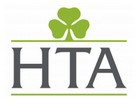In a comment on the UK Government announcement on post-Brexit trade and the border operating model, James Clark, Director of Policy and Communications at the HTA said:
“We welcome additional detail from Government on how the UK’s trade and border policy will operate but are deeply concerned that it does not address the issue of speed of transit for a sector which trades in perishable plants.
“Some plants simply can’t be grown in the UK. Increased delays at ports or at inland customs checks will mean young plants dying. We’re potentially facing four new Government customs and plant health administrative systems and a confusing and unnecessary combination of paper based and digital processes.
“In short, the administrative steps represent a significant increase in costs and time for UK businesses without delivering improved biosecurity or supporting UK production. The result will be that the UK horticulture sector is put at a substantial disadvantage to its European competitors.
“While we want to see greater UK production of plants and trees, the UK ornamental horticulture sector relies on around £350m-worth a year of imported cuttings and young plants, bulbs and other types of plants and trees. These are crucial to helping us supply the plants that people are used to buying in their garden centres and see daily in their parks and public spaces.
“We believe Government should be looking at initiatives such as trusted trader schemes and be much clearer on defining what qualifies as ‘high risk’ plants. We are pressing Government to recognise the uniqueness of ornamental horticulture in their policy development and to ensure that importing and exporting is as simple and cost-efficient as possible.”
For more information Horticultural Trades Association
Horticultural Trades Association
Horticulture House
19 High Street
Theale
Reading
West Berkshire
RG7 5AH
T: +44 (0)118 930 3132
Fax: +44 (0)118 932 3453
NGGV: +44 (0)118 930 2092
www.the-hta.org.uk
